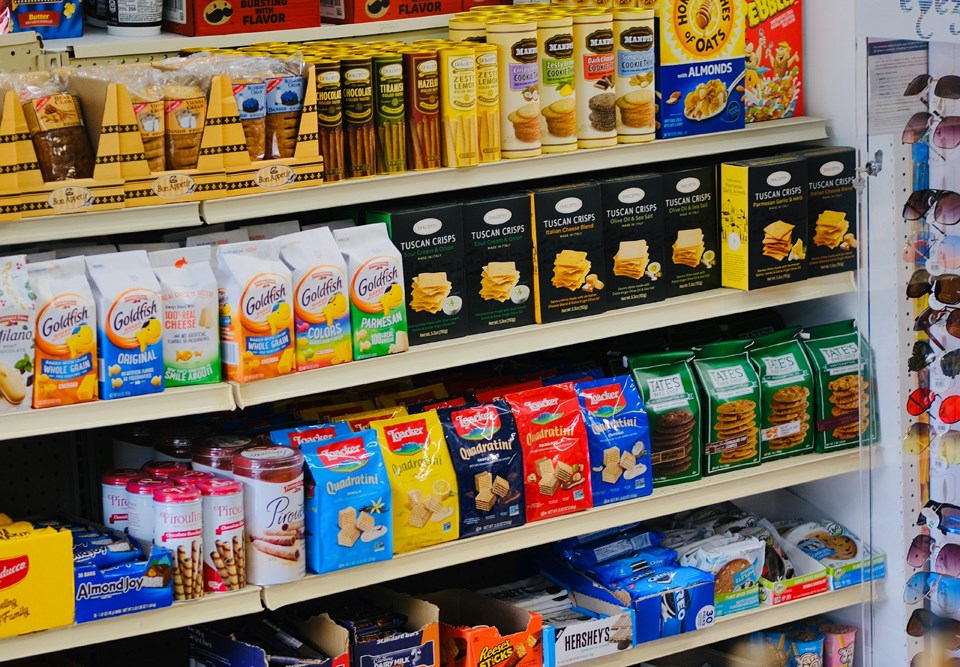For the first time since May 2017, food inflation in Canada dipped into negative territory, reaching -0.6 per cent in January. The numbers seem reassuring—on the surface. Inflation at restaurants plummeted to an all-time low of -5.1 per cent, while inflation for food purchased in stores stood at +1.9 per cent.
But before Canadians celebrate a rare break on their food bills, a deeper look at the data raises questions about whether these figures tell the whole story.
One major factor at play is the temporary GST holiday introduced nationwide, which slashed sales taxes on restaurant meals. Some provinces, such as Newfoundland and Labrador, Nova Scotia, Prince Edward Island and New Brunswick, saw a 15 per cent drop in GST/HST, while others had lower reductions, like Ontario with a 13 per cent decrease and most western provinces with a five per cent decrease.
Yet, despite this tax relief, restaurant inflation didn’t fall as much as expected, suggesting that underlying cost pressures in the food service sector remain significant. January 2025 was the only month when the GST holiday covered the entire month, making its impact on inflation particularly pronounced. However, with the tax break ending last weekend, consumers may soon feel the effects of returning taxes.
With the tax break gone, an important question remains: Was the GST holiday masking deeper inflation trends? Restaurant price reductions varied across the country, highlighting how much of the decline was tax-driven rather than a real drop in costs. If the GST holiday artificially lowered inflation, a snapback effect could soon hit consumers hard, pushing restaurant prices back up.
While the GST holiday heavily influenced restaurant prices, grocery store inflation tells a different story. Overall inflation at grocery stores appears deflated, but not across the board. Some categories, such as eggs and fresh and frozen meats, are rising, bucking the trend. These increases suggest that cost pressures remain in certain areas of the food sector despite overall declines in food prices.
Wages, border uncertainty and tariffs continue to influence costs. Additionally, the potential for opportunity pricing—where businesses raise prices opportunistically due to temporary market distortions like the GST holiday—could further drive up costs for consumers.
This brief period of negative food inflation may be more of an anomaly than a sign of lasting relief. Without the GST holiday, the actual food inflation level would likely be significantly higher. Adjusting for tax relief, restaurant inflation would have been closer to three to five per cent, rather than -5.1 per cent, while grocery store food inflation would have been closer to three to four per cent, instead of +1.9 per cent.
All of this points to one key question: Was the GST holiday merely a short-term bandage, or should it have been a lasting policy? Without it, consumers are left vulnerable to sudden price hikes that exploit temporary market distortions. While the tax break may have softened food inflation temporarily, it didn’t resolve the structural issues keeping food prices high. With tax relief now expired, Canadians should brace for a potential rebound in prices.
Policymakers and industry leaders must focus on long-term solutions to address food affordability beyond temporary tax breaks—because now that the GST holiday has ended, the real test begins.
Dr. Sylvain Charlebois is a Canadian professor and researcher in food distribution and policy. He is senior director of the Agri-Food Analytics Lab at Dalhousie University and co-host of . He is frequently cited in the media for his insights on food prices, agricultural trends, and the global food supply chain.
©
The commentaries offered on Â鶹´«Ã½AV.ca are intended to provide thought-provoking material for our readers. The opinions expressed are those of the authors. Contributors' articles or letters do not necessarily reflect the opinion of any Â鶹´«Ã½AV.ca staff.




